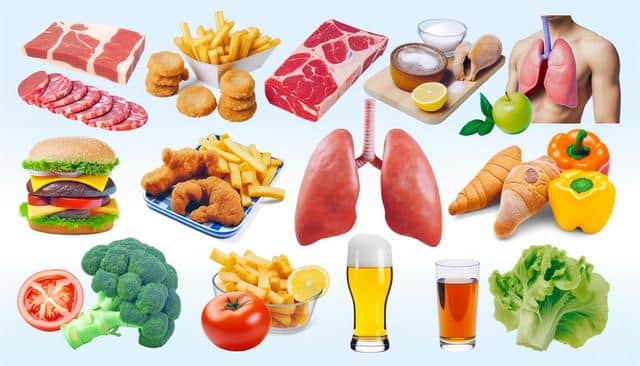Diet and Its Impact on Lung Cancer Risk
While environmental and lifestyle factors undeniably influence lung cancer risk, dietary choices can also have a substantial impact. A diet rich in processed meats, for example, has been associated with an increased risk of lung cancer. These meats often contain preservatives such as nitrates and nitrites, which are believed to contribute to carcinogenesis. Similarly, the regular consumption of refined carbohydrates and sugar-rich foods can negatively affect lung health by promoting inflammation and oxidative stress. Moreover, alcohol consumption, particularly in large quantities, may increase lung cancer risk by impairing the body’s ability to detoxify carcinogens. It’s also crucial to be mindful of acrylamide, a chemical formed in certain foods during high-temperature cooking processes, as it has been linked to cancer in animal studies.
Processed Foods and Preservatives
The consumption of processed foods is widespread, but it comes with its own set of health risks, particularly concerning lung cancer. These foods often contain high levels of salt, sugar, and unhealthy fats, as well as preservatives and artificial additives. Preservatives can lead to the formation of potentially carcinogenic compounds, which can be detrimental to lung health. Foods such as pre-packaged snacks, canned goods, and ready-to-eat meals are often loaded with these harmful substances. Emphasizing a diet that prioritizes fresh, whole foods like fruits, vegetables, and lean proteins can help mitigate these risks.
The Role of Red Meat and High-Fat Dairy Products
Consuming high quantities of red meat and full-fat dairy products has been associated with an elevated risk of lung cancer. These foods are rich in saturated fats and may contain hormones and antibiotics used during the animal rearing process, which could potentially increase cancer risk. Furthermore, red meat cooked at high temperatures can produce heterocyclic amines and polycyclic aromatic hydrocarbons, compounds that have been shown to have carcinogenic properties. To reduce lung cancer risk, adopting dietary habits that include more plant-based proteins and lower-fat dairy alternatives may be beneficial.
Lung Cancer Treatment and Dietary Considerations
For individuals undergoing lung cancer treatment, dietary choices become even more crucial. Proper nutrition can support the body during challenging therapies like chemotherapy and radiation, aiding in recovery and overall well-being. Patients are often advised to consume easily digestible foods and well-balanced meals that are rich in nutrients to maintain their strength and immune function. It’s also important for patients to avoid foods that may interfere with lung cancer meds, particularly those that can exacerbate nausea or fatigue. Consulting with a nutritionist specializing in oncology can be beneficial in creating a personalized eating plan that aligns with a patient’s specific lung cancer drug regimen and treatment goals, ensuring optimal support on their cancer journey.

